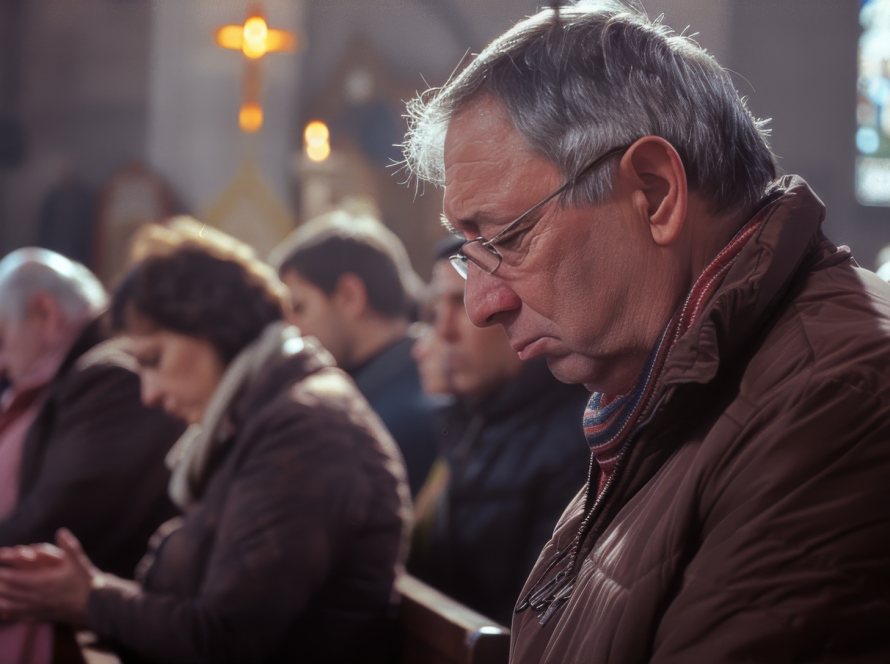Introduction:
Hospice ministry plays a crucial yet often underappreciated role in supporting families during one of the most challenging periods of their lives – the final days of a loved one. As depicted in Fr. Tony Plathe’s “The Whispered Call,” hospice chaplains act as silent guardians, offering emotional and spiritual support that extends beyond the patients to their families. This blog will delve into the profound impact of hospice ministry on families, highlighting the comfort, peace, and closure provided through compassionate care.
Providing Comfort and Solace:
Hospice chaplains are uniquely positioned to offer emotional support to grieving families, helping them navigate the complex emotions associated with the end-of-life journey.
- Empathetic Listening: One of the most significant contributions of hospice chaplains is their ability to listen empathetically. Families often experience a whirlwind of emotions – from grief and sadness to confusion and anger. A hospice chaplain provides a safe space for family members to express these feelings without judgment. Through attentive listening, chaplains validate the emotions of family members, helping them feel understood and less isolated in their grief.
- Emotional Support: Consider the story of the Thompson family, who were overwhelmed by the impending loss of their beloved grandmother, Margaret. The hospice chaplain, Fr. Plathe, spent time with each family member, offering words of comfort and reassurance. He helped them articulate their fears and sorrows, providing a sense of solace during an emotionally turbulent time. This emotional support was crucial in helping the Thompsons cope with their grief and find strength in each other.
Creating a Peaceful Environment
Hospice ministry focuses on creating a serene and dignified atmosphere for the final days of patients, which significantly impacts the families’ experience.
- Physical Comfort: Hospice chaplains work closely with the medical team to ensure that the patient’s environment is peaceful and comfortable. This involves managing pain and symptoms effectively, providing a calming space, and allowing families to spend quality time with their loved ones without the distractions of a hospital setting. A tranquil environment helps families feel more at ease, knowing that their loved one is being cared for with dignity and respect.
- Spiritual Ambiance: Beyond physical comfort, hospice chaplains enhance the spiritual ambiance of the environment. They might use soft lighting, gentle music, or symbolic items like candles and religious artifacts to create a space conducive to reflection and prayer. For the Patel family, the presence of a small altar with their grandfather’s favorite religious items brought immense comfort. It allowed them to feel spiritually connected during his final days, fostering a sense of peace and acceptance.
Spiritual Guidance and Counseling
The spiritual guidance and counseling provided by hospice chaplains offer families a pathway to peace and closure, helping them come to terms with their loss.
- Guided Reflection: Hospice chaplains facilitate guided reflection, encouraging families to share memories and celebrate the life of their loved one. This process helps family members focus on positive recollections and the legacy of their loved one rather than the pain of loss. For the Martinez family, recalling joyous moments spent with their father during weekly counseling sessions brought comfort and a sense of closure.
- Support in Rituals and Ceremonies: Chaplains often assist families in performing end-of-life rituals and ceremonies, which can be deeply meaningful. These rituals provide a structured way to say goodbye and honor the deceased. When the Lee family lost their mother, the hospice chaplain helped organize a simple yet profound ceremony, allowing each family member to say their final goodbyes in a personal and meaningful way. This act of closure was instrumental in their grieving process.
- Long-Term Support: The support of hospice chaplains doesn’t end with the passing of the patient. Many chaplains continue to provide bereavement counseling and support to families, helping them navigate the stages of grief. This ongoing support ensures that families do not feel abandoned after the initial period of loss, aiding them in their long-term emotional and spiritual healing.
Conclusion:
The impact of hospice ministry on families is profound and multifaceted. By providing emotional support, creating a peaceful environment, and offering spiritual guidance, hospice chaplains play a vital role in helping families cope with the end-of-life journey. Their compassionate presence and silent guardianship provide comfort, peace, and a pathway to closure, reminding us of the significant yet often unseen contributions of hospice ministry. As we reflect on these stories, we are encouraged to appreciate the silent but essential support that hospice chaplains offer to families during their most challenging times.

